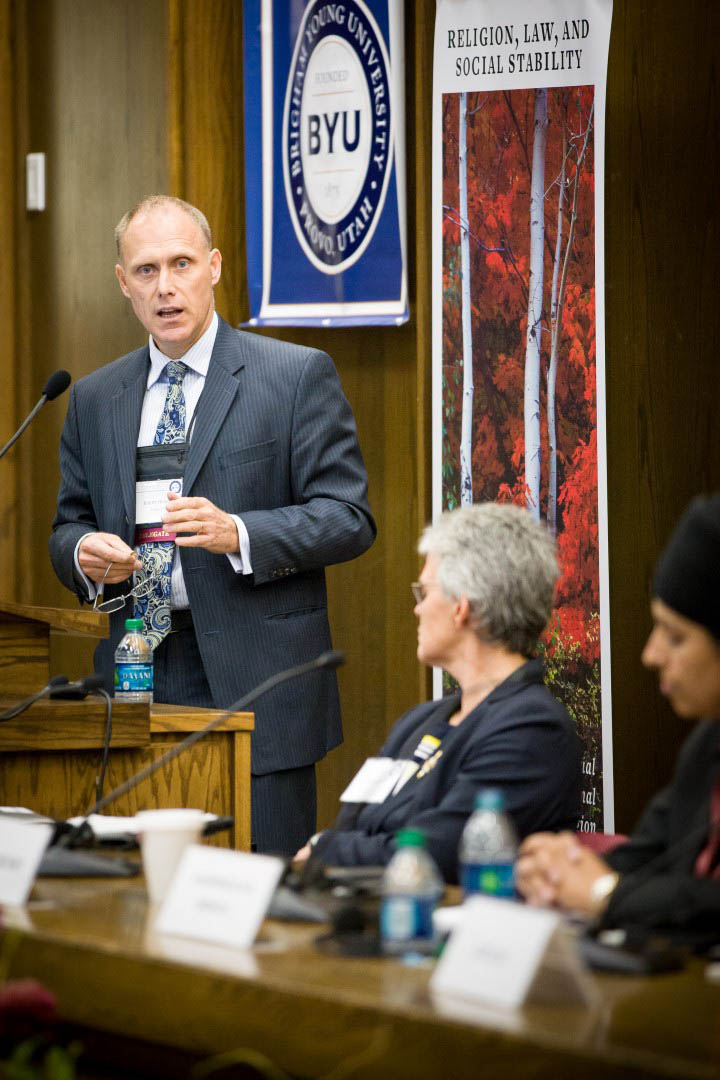Symposium 2015: Canada

Reported by Annalee Hickman Moser
In the Canada Breakout Session moderated by Sandra Pallin, a barrister and solicitor from Canada, our distinguished delegates, Barry Bussey, Palbinder Kaur Shergill, and Anna Su, discussed the most recent intersections of religion and the law in Canada.
Barry Bussey, a member of the Legal Affairs department for the Canadian Council of Christian Charities, provided an overview of his dissertation that he will shortly complete. His thesis is that “special constitutional and legal protection of religious freedom is necessary for the survival of the democratic project.” One recent event that is influencing the research and analysis for his dissertation is the desire of Trinity Western University (“Trinity”), a Christian university, to open a law school. There is a community covenant that must be signed by every student attending Trinity, which requires students to live within the university’s definition of marriage—between a man and a woman. From this, Trinity is facing opposition. While there is precedent that Trinity should receive permission for a law school, it currently is not persuasive enough. Mr. Bussey argues in his dissertation that the Trinity case highlights a possible legal revolution, and he explores the broader impact of the Trinity case. He believes the current state of the Trinity issue demonstrates the legal community’s recognition that special accommodations for religions will be challenged.
Palbinder Kaur Shergill, General Legal Counsel for the World Sikh Organization of Canada, discussed how we can move from religious freedoms to social stability, illustrating her human rights advocacy group, the World Sikh Organization of Canada, as a forward-thinking example. In particular, she discussed the roles and responsibilities of religious organizations and religious communities and how we need to reconsider the roles each has already played and decide whether we are prepared to go the extra mile, stepping outside our own religions and choosing to represent and protect “the other.” She urged participants to step forward from tolerance to acceptance of “the otherness,” even when those others’ religions believe in principles that disagree with their religious or moral beliefs. She gave examples of her organization representing religious freedom cases for religions other than Sikhism—a girl wearing a hijab while playing soccer, a boy with religious braids at school, and a child caught with a kirpan on the playground, to name a few. She asked each person to consider if their moral values take precedence over someone else’s religious freedom. She concluded our communities will have a more positive social outcome if we support “the others” in their religious beliefs, particularly when their rights do not impede our rights.
Anna Su, an assistant Professor at the University of Toronto, summarized the religious freedom principles from her forthcoming book, which tells the history of the United States’ involvement in promoting religious freedom in other countries, on behalf of beliefs and in its national interests and how Canada and other European countries have followed suit. Her lecture gave reasons why religious freedom is an endangered right and principle, which reasons she believed were unique and varied from the other attendees at the Symposium. One reason she gave is because of the increase of those that are irreligious, who think that the religious accommodations offered by Canada’s charter are unfair exemptions, and who wonder why religions are treated specially at all. She also argued that religious freedom is in danger of being marginalized if it does not speak to secular interest. She concluded that she wanted to make it clear that the pursuit of religious freedom is in the national interests of governments.